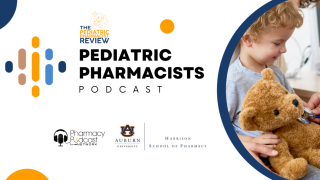Vaccination Remains Safest Way to Acquire COVID-19 Immunity

The largest review and meta-analysis assessing the extent of protection following COVID-19 infection was recently published and included 65 studies from 19 countries.
Published by The Lancet on February 16, 2023, the U.S.-based researchers say we should recognize natural immunity in people who have recently been infected with COVID-19.
But warn that their findings should not discourage vaccination because it is the safest way to acquire immunity against COVID-19.
Co-author Dr. Caroline Stein, with the Institute for Health Metrics and Evaluation (IHME) at the University of Washington’s School of Medicine, explained in a press release, “Vaccines continue to be important for everyone in order to protect high-risk populations such as those who are over 60 years of age and those with comorbidities."
"This also includes populations that have not previously been infected and unvaccinated groups, as well as those who were infected or received their last vaccine dose more than six months ago."
"Decision makers should take both natural immunity and vaccination status into consideration to obtain a full picture of an individual’s immunity profile.”
Since January 2021, several studies and reviews have reported the effectiveness of past COVID-19 infections in reducing the risk of reinfection and how immunity wanes over time.
But none has comprehensively assessed how long the protection after natural infection will last and how durable that protection will be against different variants.
To provide more evidence, the researchers conducted a review and meta-analysis of all previous studies that compared the reduction in risk of COVID-19 among non-vaccinated individuals against a SARS-CoV-2 reinfection to non-vaccinated individuals without a previous infection up to September 2022.
Analysis of data from 21 studies reporting on time since infection from a pre-Omicron variant estimated that protection against reinfection from a pre-Omicron variant was about 85% at one month—and this fell to about 79% at 10 months.
Protection from a pre-Omicron variant infection against reinfection from the Omicron BA.1 variant was lower (74% at one month) and declined more rapidly to 36% at around 10 months.
Nevertheless, analysis of five studies reporting on severe disease found that protection remained universally high for 10 months: 90% for ancestral, Alpha, and Delta, and 88% for Omicron BA.1.
Six studies evaluating protection against Omicron sub-lineages specifically (BA.2 and BA.4/BA.5) suggested significantly reduced protection when the prior infection was a pre-Omicron variant.
But when the past infection was Omicron, protection was maintained at a higher level.
“The weaker cross-variant immunity with the Omicron variant and its sub-lineages reflects the mutations they have that make them escape built-up immunity more easily than other variants,” says IHME co-author Dr. Hasan Nassereldine.
“The limited data we have on natural immunity protection from the Omicron variant and its sub-lineages underscores the importance of continuous assessment, particularly since they are estimated to have infected 46% of the global population between November 2021 and June 2022.
The researchers note some limitations of their study, cautioning that the number of studies examining the Omicron BA.1 variant and its sub-lineages and the number from Africa was generally limited.
In addition, only limited data were available beyond 10 months after the initial infection.
They also note that some information, such as past infection status and hospital admissions, was measured differently or incomplete, and could bias the estimate of protection.
Writing in a linked Comment, Professor Cheryl Cohen, National Institute for Communicable Diseases, South Africa, who was not involved in the study, says, “The high and sustained levels of protection conferred by previous infection against severe disease have important implications for COVID-19 vaccine policy."
NOTES:
- The study was funded by Bill & Melinda Gates Foundation, J. Stanton, T. Gillespie, and J. and E. Nordstrom.
- Studies examining natural immunity in combination with vaccination (i.e., hybrid immunity) were excluded from the analyses.
Our Trust Standards: Medical Advisory Committee























